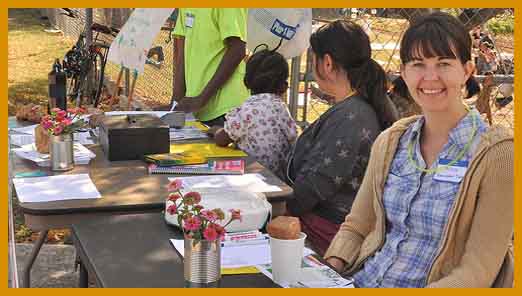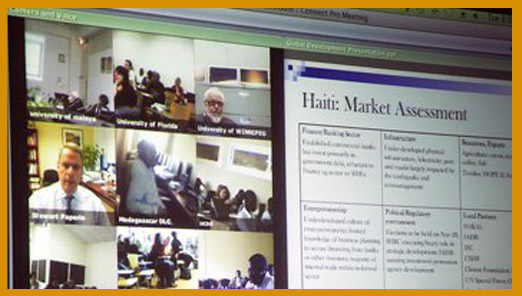Letter from the Emory MDP Team
Dear friends, students and colleagues,
As we come to the end of our first semester of our first academic year, we have much to be thankful for…
Looking back over the past year, we can only wonder and marvel at how much we have accomplished. There is no way we could have done it without the tremendous and generous support we received from the Emory University administration, faculty and staff, our local and global partner organizations, and the MDP International Secretariat.

Amazing students
First and foremost, we want to introduce and celebrate our inaugural class of MDP students. In selecting our students, our admissions committee looked for outstanding academic credentials, as well as exceptional leadership potential and wholehearted passion for equitable and sustainable development. Based on our experience and the inaugural class’ performance during this first semester, we have absolutely no doubt that we made an excellent choice of students from a wide range of backgrounds and regions across the world.
This first class of MDP students brings with it an eagerness to learn and an enormous wealth of talent and experience. Most of them have worked for a few years after college, usually in the fields of education, community development, refugee services, public health and other social services. Students have worked with (or, served) organizations such as the Peace Corps, AmeriCorps, Habitat for Humanity, Heifer Project International, American Red Cross, CARE, UNICEF and other NGOs. All of them have spent time studying or working abroad: in total the thirteen students have been to over 50 countries in the Global South.

Dynamic curriculum
Upon their arrival at Emory, the MDP students hit the ground running, with an intensive curriculum of academic studies and hands-on experience. A pre-semester preparatory seminar brought everyone on the same page, by providing a solid grounding in development theories, approaches and concepts. First semester courses established a theoretical and technical foundation in key sectoral areas, including global health, environmental management, and political economy of development. We are grateful to Emory faculty who generously contributed their time and expertise to the MDP program.
State-of-the-art instructional technology made it possible for MDP students to participate in a truly unique experience of interactive, collaborative learning. “The Global Classroom” - coordinated and taught virtually from the MDP International Secretariat at the Earth Institute- is the MDP flagship course. It connected Emory students with MDP students around the world and allowed them to directly interact with, and learn from world experts in international development such as Jeffrey Sachs, Helene Gayle, R.K. Pachauri, Mary Robinson, and others. Our valiant Teaching Fellows, Letitia Campbell and Kali-Ahset Amen, contributed enormously to the success of this learning opportunity.
Besides academic courses, training modules on GIS and Spatial Analysis – taught by Emory’s Michael Page– and on Holistic World View Analysis– taught by MAP’s Dr. Ravi Jayakaran - were integrated into the curriculum to equip students with essential practical skills. Other training sessions in which students will learn first-hand from experienced development professionals are planned for Spring 2011.
A wealth of other opportunities at Emory University offered students exposure to cutting-edge development practice and research. They include a symposium Global Health, Development, and Climate Change Adaptation - co-organized by CARE, the CDC, and the Rollins School – and a conference on Community, Participation, and Development - co-organized by the Candler School and International Relief and Development (IRD).
We have been honored to receive highly-distinguished visitors, such as Dr. Jacques Diouf, the Director General of FAO, Dr. Hopkins, the Carter Center’s Vice President for Health, and Dr. Tony Barclay, former President and CEO of Development Alternatives Inc., a leading development consulting firm. At the same time, we also learned from grassroots practitioners from the Global South, such as Ms. Uma Tamang of Maiti, Nepal, who leads the fight against human trafficking in the Indian sub-continent, and Mr. Actionnel Fleurisma who, with his colleagues at Friends of OFCB, is spearheading efforts to build human capacity and community self-reliance in rural Haiti. In addition, several activists and leaders from the Atlanta area shared their experiences on the frontlines of collective action and community empowerment by speaking in our classes or hosting field visits.
We are grateful to our close collaborators at the Institute for Developing Nations (IDN) for critically contributing to the MDP mission by co-sponsoring many of these special events, including both conferences, the MAP workshop, and the visits of distinguished speakers.

Experiential learning
In the last few months MDP-ers have also started a two-year long engagement with Atlanta-based community-based organizations that work with low-income neighborhoods, refugee and immigrant communities, urban agriculture and environmental projects. Supported by Emory’s Office for University and Community Partnership , this experience in engaged learning enables students to explore the linkages between local and global dimensions of health and well-being, human capacity building, environmental citizenship, and social justice. It also provides students with opportunities for analyzing personal, ethical, and political issues that arise in working with communities by processing successes and failures in the context of classroom reflection, faculty supervision, and community mentorship. Our Teaching Fellow, Kali-Ahset Amen, serves as Coordinator for this initiative.
Last but not least, a hallmark of the MDP program is the field practicum that students undertake for the two summers following their first and their second academic year. We are extremely grateful for the amazing support provided by our partner organizations in making this aspect of our program possible and for hosting and mentoring our students during their summer fieldwork. The students will spend the next summer in India, Liberia, Ethiopia, Somalia, Benin, and Bolivia working with CARE, UNICEF, FAO, The Carter Center, and MAP International. They will engage in a wide range of projects, ranging from maternal and child health to water and sanitation, from HIV/AIDS prevention to mental health care, from conflict management and disaster assistance to climate change adaptation and mitigation. During the Spring semester, students will prepare for their field practicum by engaging in critical reflections on key development interventions, developing skills in research methods and data analysis, learning about the countries and organizations they will be serving in, and strengthening their ability to speak the relevant languages.
In addition to the established partnerships and field placements, during the past few months we made scoping visits to Ecuador, Paraguay, Burkina Faso and Brazil to explore future opportunities and have been engaged in partnership-building discussions with organizations such as Oxfam, The Hunger Project, Plan International, Partners In Health, and International Relief and Development.
We are now looking forward to an exciting and productive Spring semester, full of more opportunities for learning and growing (for all of us!).
Once again, we cannot thank you enough– students included - who worked so hard and gave so much to make this great program possible.
We wish you all a peaceful Holiday season and a wonderful New Year.
David Nugent, Director

Carla Roncoli, Associate Director

